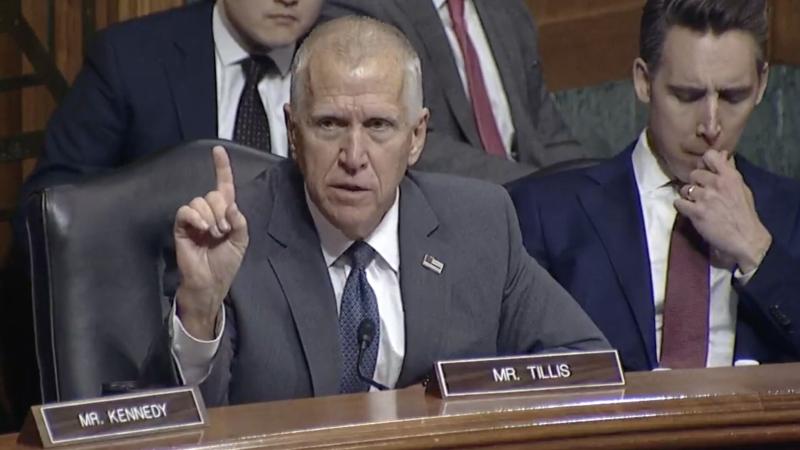U.S. Sen. Thom Tillis, R-N.C., introduced legislation to stop what he calls “predatory litigation financing,” but critics on the right are raising concerns about the First Amendment and unintended consequences of the bill.
The legislation in question targets third-party litigation funding, which is when a law firm or group covers the legal costs of a lawsuit with the expectation that they will reap part of the financial benefits if the lawsuit is won.
Tillis argues that the practice encourages constant lawsuits for financial gain that ties up the courts and raises costs for Americans.
“Predatory litigation financing allows outside funders, including foreign entities, to profit off our legal system, driving up costs and delaying justice,” Tillis said in a statement. “This legislation will bring much-needed transparency and accountability by taxing these profits and deterring abusive practices that undermine the integrity of our courts.
Critics of the legislation raised concerns about Americans’ rights to file and support lawsuits when they’ve been wronged and concerns about limiting Americans’ rights to do so. The proposed legislation also could make it difficult for regular Americans to take on large, well-funded opponents since they can’t afford legal fees that can cost into the millions of dollars.
In the past, many lawsuits taking on large companies have used third-party funding. For instance, Erin Brockovich’s famous lawsuit against Pacific Gas & Electric for groundwater contamination relied on third-party funding.
That type of funding has been the source of many major legal wins that hold corporations and others accountable.
Critics largely agree there is a problem, but they say Tillis’ solution may cause other unforeseen problems.
“While we can appreciate the concerns that advocates are trying to address, we have reservations how the current proposals would affect donor privacy, and by extension, First Amendment rights,” the conservative Heartland Impact wrote on X.
How a group could prove they are not outside funded in their lawsuit without revealing donors is an interesting question.
“While I believe [Tillis’] intentions were good, this legislation, attacking litigation financing, would be disastrous if passed,” Will Hild, executive director of Consumers’ Research, said on X, adding that the bill “would further empower large, woke corporations (like @BlackRock, @BankofAmerica & @Nationwide) to crush the little guy and force their far-left agenda onto America. It would rob everyday Americans of a fundamental tool in fighting back.”
“We’ve seen countless examples of woke corporations discriminating against those who don’t fall in line with their radical political agenda – from debanking to DEI-driven discrimination – these corporations feel as if they can act with impunity, because traditionally the average consumer/employee has little means to fight back,” he added.
Tillis is pointing out what many agree is a problem: overuse and abuse of litigation. But how to fix it presents problems.
Part of the problem with some of the lawsuits funded by third parties is because they are sometimes funded by foreign sources.
“There is now estimated to be well over $15 billion deployed for U.S. litigation financing, with the leading firm seeing a 355% increase in its assets over the last several years, including the addition of nearly $1 billion at the end of 2018 by an unknown, foreign sovereign wealth fund,” Tillis’ office said.
Rep. Kevin Her, R-Okla., has introduced companion legislation in the U.S. House to address what he calls “frivolous lawsuits.”
“Foreign entities shouldn’t be allowed to meddle tax-free in the American legal system,” Hern said. “Frivolous lawsuits have gotten out of control in recent years, largely because of these third-party funders fueling a market that is ballooning. Taxing these third-party entities will limit unmeritorious lawsuits and provide economic relief to the middle class.”







